Into the Light
Gentille M. Assih
2020
| 79 min 46 s
Original French version with English subtitles
Into the Light features the liberating life stories and powerful words of inspiring Quebec women of African origin who’ve regained control over their lives after suffering from domestic violence. The film transcends prejudice and breaks the silence, pulling back the curtain on a poorly understood, hidden world, while testifying to the tremendous power that comes from overcoming isolation and accepting one’s self. It’s a luminous dive into the quest for personal healing and universal humanity. This is Togo-born director Gentille M. Assih’s third documentary.
Into the Light brings us the liberating life stories and powerful words of inspiring Quebec women, originally from West Africa, who’ve regained control of their lives after being subjected to domestic violence. The documentary compassionately explores the challenges of immigration while looking past cultural differences to tackle an issue that exists in every corner of the globe. It is a luminous dive into the quest for personal healing, a quest that’s sustained by sharing and friendship.
The film follows Christiane, a high school French teacher, and her friend Aïssata, who works in finance. They had no clue that the process of immigrating to Canada and integrating into a new culture would contribute to the breakup of their families, which fractured as a result of domestic violence. Along the way, we meet Chouchou and her husband, a younger couple who’ve recently arrived in Canada; an imam; a pastor; an African motivational speaker; friends who had no idea what they were going through; a doctor; and even Christiane’s father in her country of origin, Togo. As we meet the people around them, we come to understand the depths and complexity of their experience, and the courage it takes to reclaim control of their lives.
Gentille M. Assih’s close relationship and bond of trust with the film’s protagonists yield an authentic look at the life stories of these strong, proud women—stories that are rarely heard. Their words carry the film, eloquently exposing the mechanisms of domestic violence, which transcend cultural boundaries. Capturing a side of Montreal that will be unfamiliar to most viewers, the film contains revelations that shatter the silence and show how challenging it can be for immigrants to reconcile their culture of origin with that of their new home, and the gulf that can divide a couple as a result. Exploring a difficult subject with sensitivity and tact, Into the Light bridges cultures and testifies to the tremendous power that comes from overcoming isolation. It is this power that makes it possible to speak words that bring with them release, healing, and the ability to create a better tomorrow for future generations. Into the Light is a film filled with hope.
Director's Note
We already know that intimate partner violence is rampant in Quebec and the rest of Canada.
Through reading, through conversation, and by listening to women, I came to realize that the cyclical nature of conjugal violence and the trauma it entails are quite similar for all victims, regardless of their country of origin. Nevertheless, my experience and that of immigrants like Christiane Zanou led me to realize that immigration is an aggravating factor.
Sharing Christiane Zanou’s story is a way for me to show that this problem exists. Since her separation, Christiane hadn’t spoken about the trauma she’d suffered in her own home. She was in denial for a long time about having been a victim of domestic violence. But Christiane and I recognized that she needed to talk about her experience so that she could become free to move on to a new chapter in her life.
One day, I got some voice messages. Her voice filled with sadness, Christiane was finally breaking her silence: “My relationship with my ex is over. I’ve managed to put an end to all these years of abuse, of domestic violence…. I realize now how much damage has been done. All those years of violence… it wears you out…” She had trouble finishing her sentences and getting the words out. I could feel the huge effort she had to make to speak. I was extremely moved and relieved at the same time, because Christiane had succeeded in breaking through the barrier that had prevented her from starting to heal.
I had recently introduced her to Aïssata, a former neighbour who was also a victim of intimate partner violence. Knowing that there were other women still living through this hell motivated Christiane to go beyond her comfort zone. Aïssata gave her the strength to act. Christiane later convinced Aïssata to participate in the film. While they have different religions, both women received practically the same education. They both grew up in Ivory Coast and share the same language references. They are well-educated and speak French impeccably. They also speak Ivorian French, which is sometimes better suited for expressing certain things.
Thanks to Aïssata, Christiane realized that her experience could serve to help other immigrants get out of similar situations and break the chain of conjugal violence. She also wanted to warn newcomers like Chouchou, who’s also in the film. Going from feeling alone to assisting others has helped enormously with her own healing journey.
I spent a lot of time with Christiane and Aïssata to grasp their motivations for making this film. I understood that they don’t want others speaking for them anymore. Their comments are not about complaining. They are discerning enough to not fall into the trap of being seen as frustrated women who are complaining. Through discussions and interviews, we come to clearly understand how the process of manipulation works. With startling clarity, they analyze the reasons conjugal violence is so widespread within the West African immigrant community. By following their journey, through which they retake control of their lives, we see just how capable they are, and watch as they lead by example.
Interview with the filmmaker on the NFB blog
The third documentary by Canadian filmmaker Gentille M. Assih, who was born and raised in Togo, was inspired by the courage of three women in her social circle: Christiane, Aïssata and Chouchou, all of whom were immigrants who’d experienced intimate partner violence.
Their desire to speak out and take control of their lives again is at the heart of Assih’s Into the Light, a moving film that takes a sensitive and nuanced look at their journeys. The conversation that ultimately emerges goes beyond accusations and revenge. It’s about healing. [CONTINUE READING]
RESOURCES
Information about family violence in Canada: canada.ca
Article on domestic violence in Canada: macleans.ca
Help resource: canada.ca
Trailer
Clip
Team
Gentille M. Assih
Director
Photo
Photo : Nicolas Nault
Nathalie Cloutier
Producer and Executive Producer, NFB
Photo
Photo : Valérie Sangin
Colette Loumède
Executive Producer
Photo
Photo : NFB
Images
Loading...
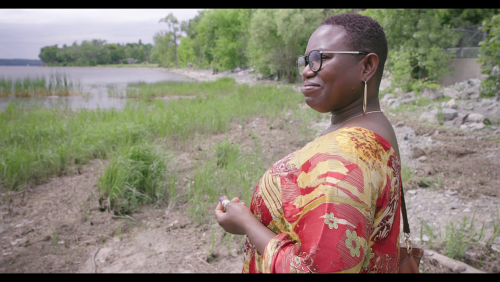 Photo: NFB
Photo: NFB
Download
Loading...
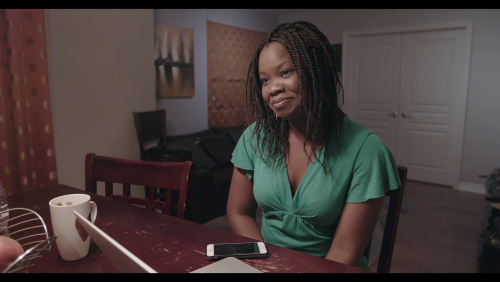 Photo: NFB
Photo: NFB
Download
Loading...
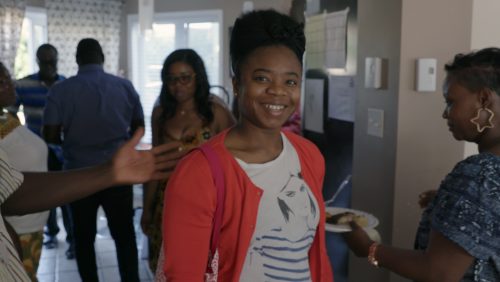 Photo: NFB
Photo: NFB
Download
Loading...
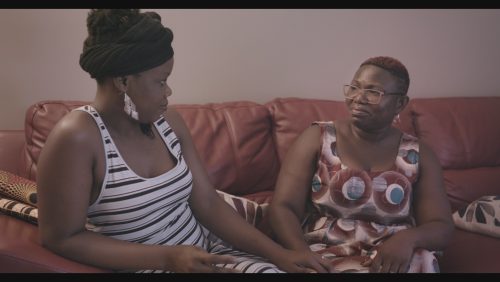 Photo: NFB
Photo: NFB
Download
Loading...
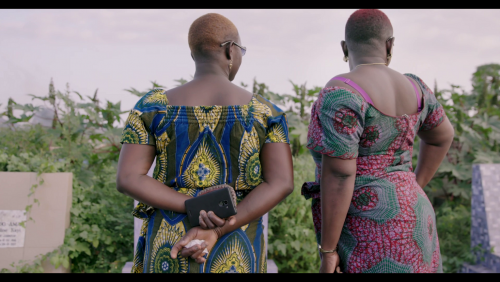 Photo: NFB
Photo: NFB
Download
Loading...
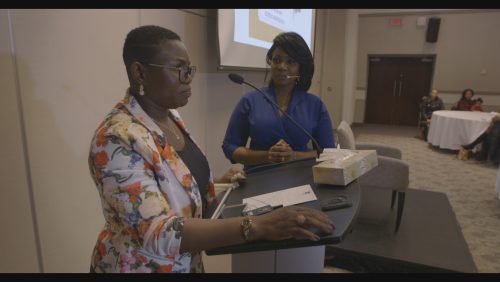 Photo: NFB
Photo: NFB
Download
Loading...
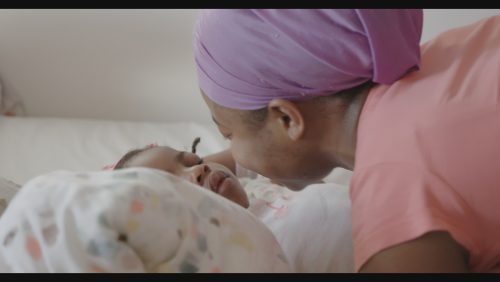 Photo: NFB
Photo: NFB
Download
Loading...
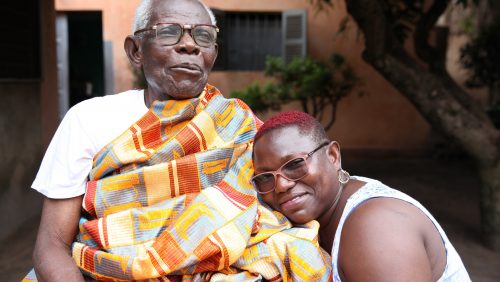 Photo: Steve Patry // NFB
Photo: Steve Patry // NFB
Download
Loading...
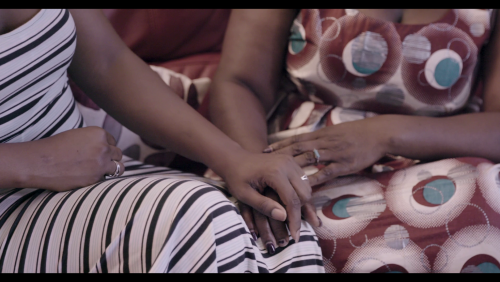 Photo: NFB
Photo: NFB
Download
Loading...
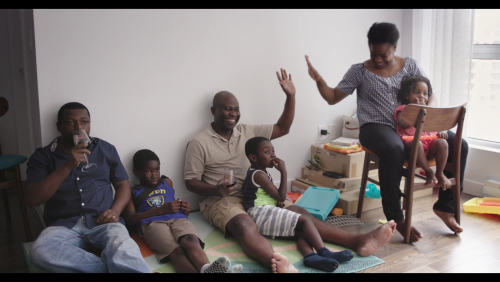 Photo: NFB
Photo: NFB
Download
Loading...
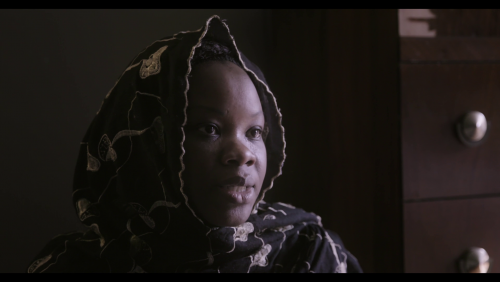 Photo: NFB
Photo: NFB
Download
Loading...
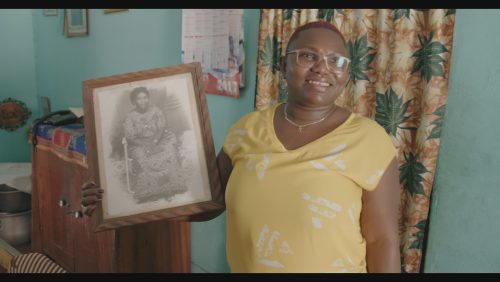 Photo: NFB
Photo: NFB
Download
Promotional Materials
Graphic design
The beautiful promotional elements have been designed by Leona Carthy : instagram.com/art_by_leoart
Credits
With the participation of
Christiane Eméssé Kafui Zanou
Aïssata Cissé
Chouchou Pyalo Assih
Produced by
Nathalie Cloutier
Researched, Written and Directed by
Gentille Menguizani Assih
Director of Photography
Steve Patry
Editing
Mathieu Bouchard-Malo
Sound Recording
Lynne Trépanier
Sound Design
Marie-Pierre Grenier
Production Manager
Andrée-Anne Frenette
Additional Sound Recording
Pierre Beaulieu
Julien Fréchette
Simon Plouffe
Ronin Operator
Amine Sahed
Production Assistant – Togo
Tchassim Toussin
Technical Support – Editing
Pierre Dupont
Isabelle Painchaud
Patrick Trahan
Titles
Mélanie Bouchard
Translation and Subtitling
DIFUZE
Online Editing and Colourization
Yannick Carrier
Dialogue Editing
Ariel Harrod
Foley
Nicolas Gagnon
Foley Recording
Geoffrey Mitchell
Re-recording
Jean Paul Vialard
Original Music
François Cloutier
Additional Music
“Elle n’a pas vu”
Composed and performed by Charlotte Dipanda
“Chéri ton disque est rayé”
Composed and performed by Patience Dabany
“Quelqu’un laisse quelqu’un prend”
Composed by Wilfried Privat Tetchi Ossohou, Stéphane Eric Tetchi Akpe, Yannick Martial Kouassi, Jean Luc Hervé Yoman Yoro
Performed by Bénédiction
Music Copyright Clearance
Sylvia Mezei
Thanks to
Abalo Kougbamokou
Cedric Assignon
Grace Assignon
Dr. Célestin Badjagbo Koffi
Awumey Edem
Marie-Josée Zanou
Thomas Zanou
Vital Zanou
Thanks also to
Moussa Adou
Léonie Amouzou
Alexis Ange
Ayité Atayi
Justine Djelou
Philomène Dote
Rachel Isidkenu Gbadamassi
Perpétue Hounsinou
Rodlyne Jean
Emlor Jeanne
Pallo Manaa
Patron Mandjadéou Assih
Marie-Ève Talbot
Vinh Tang
Tindane Thomas
Ariane Turmel-Chénard
Audrey Yelle-Béland
Kossiwa Zinsou
Embassy of the Togolese Republic in Canada
Clinique PhysioExtra
Direction nationale de la cinématographie du Togo
Garderie Les Libellules
Paroisse Sacré-Cœur Junior de Tokoin Est à Lomé
Legal Advisor
Christian Pitchen
Press Relations
Marie-Claude Lamoureux
Marketing Manager
Judith Lessard-Bérubé
Marketing Coordinator
Jolène Lessard
Administrator
Sia Koukoulas
Studio Coordinators
Pascale Savoie-Brideau
Gabrielle Dupont
Production Coordinators
Pascale Savoie-Brideau
Chinda Phommarinh
Coralie Dumoulin
Joëlle Lapointe
Technical Coordinator
Mira Mailhot
Line Producer
Mélanie Lasnier
Executive Producers
Colette Loumède
Nathalie Cloutier
Media Relations
-
About the NFB
Founded in 1939, the National Film Board of Canada (NFB) is a one-of-a-kind producer, co-producer and distributor of engaging, relevant and innovative documentary and animated films. As a talent incubator, it is one of the world’s leading creative centres. The NFB has enabled Canadians to tell and hear each other’s stories for over eight decades, and its films are a reliable and accessible educational resource. The NFB is also recognized around the world for its expertise in preservation and conservation, and for its rich and vibrant collection of works, which form a pillar of Canada’s cultural heritage. To date, the NFB has produced more than 14,000 works, 7,000 of which can be streamed free of charge at nfb.ca. The NFB and its productions and co-productions have earned over 7,000 awards, including 11 Oscars and an Honorary Academy Award for overall excellence in cinema.